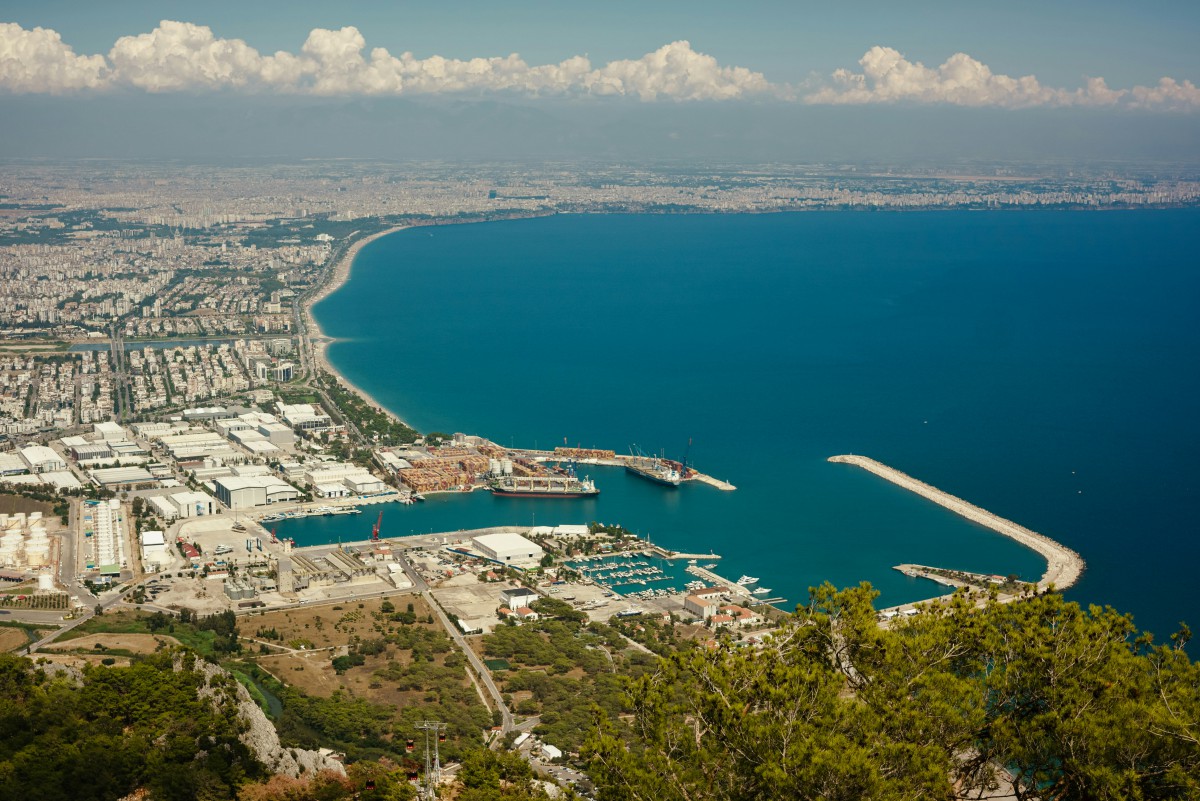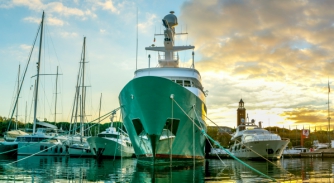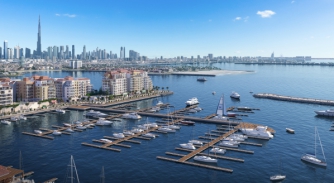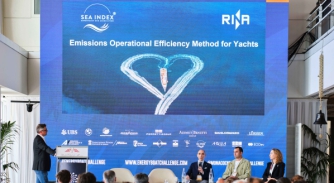How ESG is driving Turkish marinas
Kemal Altug Özgün and the CBC Law team discuss how ESG principles are driving sustainability and financial success for marinas…
In this article, Kemal Altuğ Özgün, Managing Partner, along with Burak Bayrak, Associate, and Buket Özkan, Legal Trainee at Turkish law firm CBC Law, dive into why ESG principles are a game-changer for marina businesses in Türkiye. They spotlight how embracing sustainability not only boosts financial performance and competitive edge but also meets crucial environmental responsibilities, aligning with global sustainability trends.

Nowadays, marinas serve as vibrant living spaces that both enhance architectural aesthetics and provide economic development to the regions where they are located. When managed properly and located appropriately, marinas are businesses that support biodiversity and revitalise coastlines. The diversity and richness of Türkiye's peninsular coastline stands out as an advantage across Europe. To fully utilise this advantage, marina operators should prioritise sustainable and viable coastal management policies. The adoption of ESG principles in marina management, embracing a sense of responsibility that goes beyond economic gains and includes environmental and social impacts, will ensure the future success and sustainability of the business through a holistic management approach.
Key principles for corporate sustainability
Today, focusing solely on financial performance is not sufficient for businesses to achieve long-term success and sustainability. ESG criteria are especially crucial for the sustainability of marina businesses since their operations are directly tied to the quality of the marine environments. These criteria enhance a business’s long-term value creation by considering its environmental impact, social responsibility and ethical governance approach, thereby influencing the preferences of both investors and customers.
Environmental factors and practices
The environmental dimension of ESG involves a business’s impact on natural resource utilisation, energy efficiency, waste management and carbon footprint. Marina businesses can optimise their environmental impact by implementing strategies such as adopting wind and solar energy, utilising eco-friendly maintenance and construction materials, promoting water conservation practices and improving waste-prevention efforts. These strategies contribute to both the environment and long-term financial performance.
By controlling biological and chemical wastes in the marine ecosystem through environmental management practices, marinas reduce operational costs and gain a competitive advantage in marketing. Marinas in Türkiye prioritise international certifications such as the Blue Flag, Golden Anchor and Blue Star, as well as certification processes like ISO 14001 Environmental Management System and the ICOMIA Clean Marina Programme, to improve their environmental performance. These certifications and documents support marinas' efforts to minimise their environmental impact and establish quality standards.
At the same time, marina businesses may increase their reputation with the Green Port Certificate they will receive from the Ministry of Transport and Infrastructure by applying in accordance with the criteria determined within the scope of the relevant regulation. Such processes allow marina business owners to transparently present their quality standards to stakeholders by complying with the criteria specified in the legislation.
In addition, controlling pollution at its source and implementing preventive measures provide an effective and cost-efficient solution. In this context, state authorities must strengthen regulatory measures in line with environmental and social sustainability principles concerning the designation of new marina locations and the operations of existing ports. Such actions are critical, as the foundation of yacht tourism relies on maintaining the quality of the marine environment where these activities occur. Therefore, it is essential to determine the number and capacity of marinas in a manner that preserves the environmental values of the geographical regions in which they will be situated.
Social responsibility and community contribution
The social dimension of ESG in marina management encompasses how businesses interact with local and regional communities as well as communicate with all stakeholders. To improve employee well-being, contribute to their communities, and provide a fair working environment, businesses can develop a variety of social responsibility programmes. Common practices include organising coastal clean-up events with local communities or collaborating with non-profit organisations. Such initiatives not only enhance employee engagement and improve the quality standards of business activities but also strengthen the reputation of marina businesses.
Governance principles and transparency
In the governance aspect of ESG impacts within marina businesses, it is essential to address issues such as employee rights, occupational health and safety, management structure, corporate ethics, accountability and shareholder/stakeholder relations. Good governance ensures that management conducts decision-making processes in a transparent and fair manner. The adoption of appropriate policies and procedures within the marina and other areas secures an effective and sustainable corporate structure. Additionally, periodically preparing sustainability reports enables marina businesses to effectively manage their environmental performance and maintain transparent communication with their stakeholders. Similar to social factors, these practices enhance reputation and positively influence stakeholder interest.
Marina businesses should adopt a management structure aligned with ethical values and implement a transparent communication policy. Establishing qualified personnel and efficient organisational structures is essential. To achieve this, providing sector-specific training to employees and developing detailed policies and procedures will be beneficial. Business founders should foster a cohesive corporate culture that promotes long-term sustainability. This approach enables businesses to build trustworthy relationships with their stakeholders and achieve their long-term sustainability goals.
Global legal compliance dynamics and trends in ESG
According to a report published by Morgan Stanley Capital International, the key ESG issues businesses should focus on in 2024 include compliance with the impacts of international regulations, due diligence obligations within supply chains and organisational structures, investments aimed at protecting nature and preventing the climate crisis, and the integration of artificial intelligence in managing sustainability obligations.
Marina businesses, obligated to operate in accordance with international standards, must consider the legal framework and environmental impacts they face, highlighting the importance of the United Nations Sustainable Development Goals. In this context, the practices and contributions of marina operators towards Goal 7 — ensuring access to affordable, reliable, sustainable, and modern energy for all — are essential. Activities aimed at combating climate change, protecting oceans, seas, and water resources, preserving terrestrial ecosystems, and supporting sustainable ecosystems will enhance the value of marina businesses in the eyes of customers, investors and stakeholders. Adopting these goals not only fulfils environmental responsibilities but also contributes to establishing a sustainable and long-term value-driven business model for marinas.
In terms of international directives and standards, the Paris Climate Agreement is particularly significant. This legally binding international agreement aims to combat climate change and reduce greenhouse gas emissions. Although marina businesses may face short-term cost challenges when structuring their organisations to address these issues, adopting a sensitive approach to greenhouse gas reduction and climate change will ultimately lead to the most effective strategy for long-term business sustainability and environmental compliance.
Additionally, the Corporate Sustainability Reporting Directive (CSRD), which came into effect in 2024, must also be considered. Companies based outside the European Union (EU), including those from Türkiye, are required to comply with this directive if they have a subsidiary or branch within the EU and conduct significant business activity annually. To summarise the criteria, a non-EU company must comply with the CSRD if it generates over 150 million euros in revenue within the EU for two consecutive years and has a subsidiary or branch in the EU that generates more than 40 million euros in revenue. In such cases, the subsidiary or branch must perform sustainability reporting for the entire parent company group in accordance with CSRD guidelines. Furthermore, the European Sustainability Reporting Standards should be assessed alongside the CSRD, as they provide guidance on what companies should report regarding environmental, social, and governance issues, and are essential for effective sustainability reporting.
Another crucial aspect to consider regarding compliance dynamics is the conditions and obligations established in national legislation. For instance, compliance with the obligations specified in Article 23 of the Ports Regulation, titled Rules for Environmental Protection and Prevention of Environmental Pollution, must be ensured within this framework.
Marina businesses in Türkiye are increasingly adopting ESG principles to enhance their sustainability in environmental, social, and governance areas. These steps are vital not only for improving financial performance but also for ensuring the long-term sustainability of marine tourism. By implementing a sustainability-focused management approach, businesses fulfil their environmental and social responsibilities while contributing to the protection of the marine ecosystem. Furthermore, this comprehensive strategy adds value to both society and investors, providing a competitive advantage in the long run. In this context, sustainability practices are expected to have a broader impact on marina management and emerge as a key differentiator in the business landscape.
NEW: Sign up for SuperyachtNewsweek!
Get the latest weekly news, in-depth reports, intelligence, and strategic insights, delivered directly from The Superyacht Group's editors and market analysts.
Stay at the forefront of the superyacht industry with SuperyachtNewsweek
Click here to become part of The Superyacht Group community, and join us in our mission to make this industry accessible to all, and prosperous for the long-term. We are offering access to the superyacht industry’s most comprehensive and longstanding archive of business-critical information, as well as a comprehensive, real-time superyacht fleet database, for just £10 per month, because we are One Industry with One Mission. Sign up here.
Related news

Indonesia’s first superyacht marina set to open
Marina Development Indonesia (MDI) and Pelindo have signed a contract to build Indonesia’s first full-service marina meeting international standards
Crew

Why marinas matter
Yachts can spend up to 90 per cent of their life in a marina, so onshore ESG practices are more important now than ever
Crew

D-Marin expands in Dubai
The first phase of the marina is scheduled to open this month, offering 32 berths for yachts up to 40 metres
Business

Scope 3 emissions – their challenges and potential solutions
As Scope 3 becomes critical to reporting and disclosure regulations, businesses must understand and manage these emissions to future-proof their business
Business

New CO2 emissions tracking tool
Sea Index® and RINA are collaborating on the next addition to their methodology, focusing on the life-cycle impact of fuels, from conventional to biofuels
Crew
Related news
Indonesia’s first superyacht marina set to open
6 months ago
Why marinas matter
6 months ago
D-Marin expands in Dubai
6 months ago
New CO2 emissions tracking tool
8 months ago
NEW: Sign up for
SuperyachtNewsweek!
Get the latest weekly news, in-depth reports, intelligence, and strategic insights, delivered directly from The Superyacht Group's editors and market analysts.
Stay at the forefront of the superyacht industry with SuperyachtNewsweek



